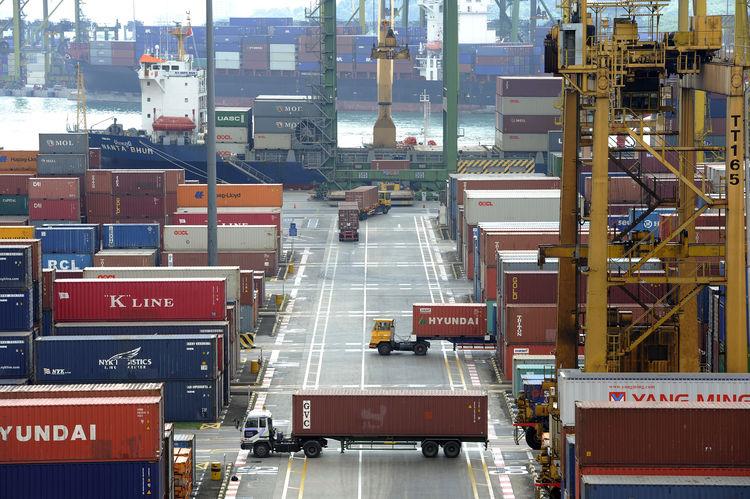The continued decline in the non-oil export is due to the poor implementation of the Export Expansion Grant scheme by the Federal Government, non-oil sector exporters have said.
According to them, Nigeria’s non-oil exports decreased from $3bn in 2013 to $1.6bn in 2015 as a result of the poor implementation of the EEG since 2010.
The Executive Secretary, Organised Private Sector Exporters Association, Mr. Jaiyeola Olarewaju, stated that the decreasing trend in non-oil export would persist in 2016, judging by the available information.
Olarewaju, who spoke to journalists in Abuja on Friday, said, “According to a comprehensive Impact Assessment Report prepared by the Nigerian Export Promotion Council and released in May 2016, the decline in non-oil export is chiefly attributed to the disruption in the implementation of the EEG scheme since 2010.
“Due to the non-acceptance of the Negotiable Duty Credit Certificate, an instrument through which the grant is disbursed, a backlog of N123bn of unutilised NDCC’s has piled up. The exporters were paralysed by the backlog and had no option but to scale down exports which bore a stark reflection on the country’s non-oil export performance since 2014.”
He stated that Nigeria’s non-oil export sector was still in its infancy and came into mainstream in the last 10 years due to the policies that were put in place that encouraged the sector to invest in agricultural supply chains, export processing factories and overseas marketing.
Nigeria’s export basket comprises agro-allied commodities such as cocoa, cashew, cotton, sesame seeds, rubber, finished leather, tobacco, textiles, processed marine products, footwear and plastics.
The EU is Nigeria’s largest trading partner, accounting for about 40 per cent of the market share, followed by Asia and ECOWAS, accounting for 25 per cent and 18 per cent, respectively.
Olarewaju stated that for the past two years, exporters in Nigeria had been sitting on a backlog of over N100bn worth of unutilised export certificates issued under the seal of the Federal Ministry of Finance.
He said, “These are sovereign instruments and the government should honour its financial commitments as per extant law. It is unfair that some exporters were issued the certificates for exports made till 2013 whereas many others who had submitted their applications remain outstanding for no fault of theirs.
“This is part of the backlog lying with NEPC. After all, government policy is not based on first come first served. By any principle of fairness and justice, all pending applications for the EEG on account of exports made till 2013 should be treated by the Federal Ministry of Finance.”
According to the executive secretary, most developing countries give incentives to boost their exports.
Olarewaju said, “China, the world’s largest exporter, increased the export tax rebates in 2015 to check decline in exports. India provides a package of incentives to its exporters through its five-year foreign trade policy. Nigerian manufacturers need the EEG to mitigate the negative impact of infrastructural and other cost disadvantages.”


 Forex2 weeks ago
Forex2 weeks ago


 Naira1 week ago
Naira1 week ago
 Naira4 weeks ago
Naira4 weeks ago
 Company News4 weeks ago
Company News4 weeks ago




 Naira2 weeks ago
Naira2 weeks ago
 Billionaire Watch1 week ago
Billionaire Watch1 week ago




 Naira1 week ago
Naira1 week ago




 Naira3 weeks ago
Naira3 weeks ago





















